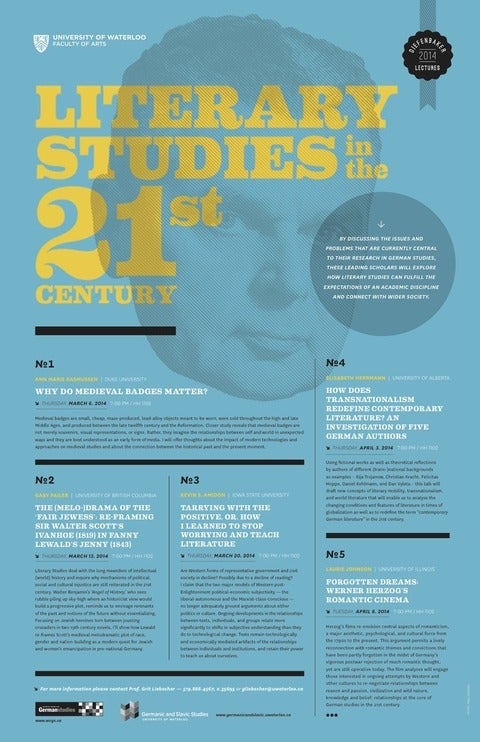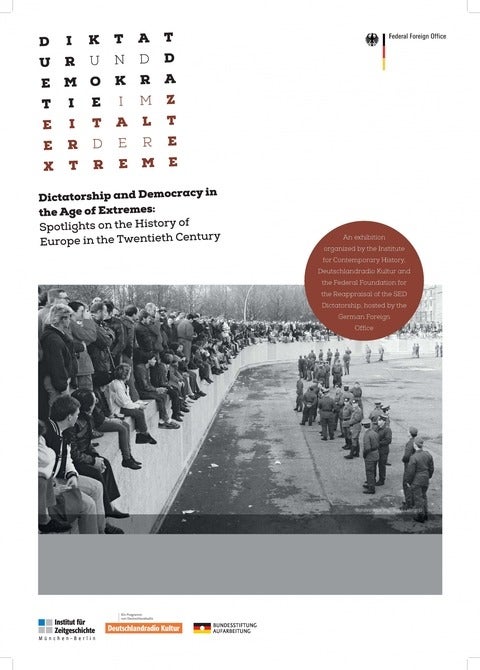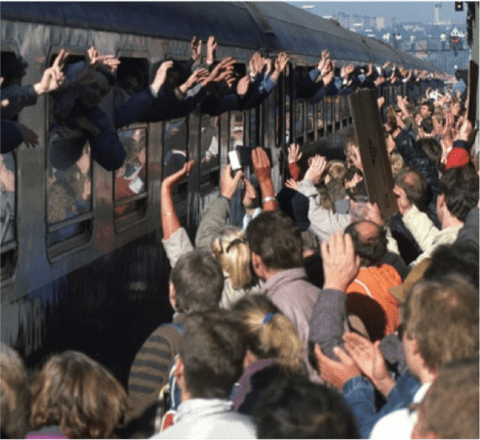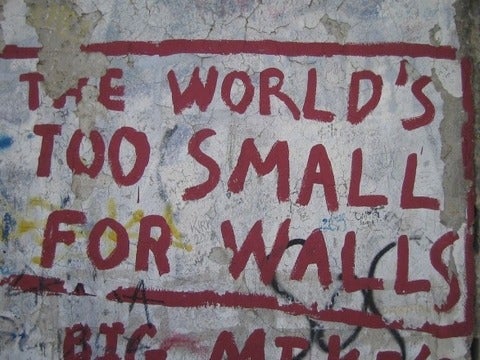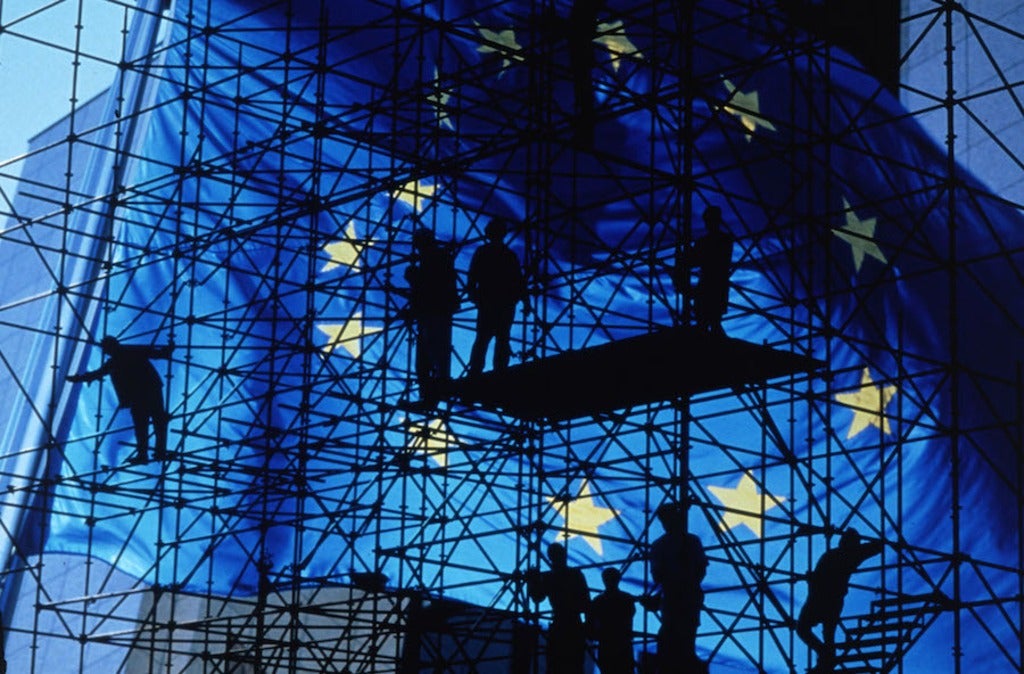Events
Filter by:
Diefenbaker Lecture Series: Literary Studies in the 21st Century
By discussing the issues and problems that are currently central to their research in German Studies, these leading scholars will explore how literary studies can fulfill the expectations of an academic discipline and connect with wider society.
Diefenbaker Lecture Series: Literary Studies in the 21st Century
By discussing the issues and problems that are currently central to their research in German Studies, these leading scholars will explore how literary studies can fulfill the expectations of an academic discipline and connect with wider society.
Diefenbaker Lecture Series: Literary Studies in the 21st Century
By discussing the issues and problems that are currently central to their research in German Studies, these leading scholars will explore how literary studies can fulfill the expectations of an academic discipline and connect with wider society.
Diefenbaker Lecture Series: Literary Studies in the 21st Century
By discussing the issues and problems that are currently central to their research in German Studies, these leading scholars will explore how literary studies can fulfill the expectations of an academic discipline and connect with wider society.
Dictatorship and Democracy in the Age of Extremes: Spotlights on the History of Europe in the Twentieth Century
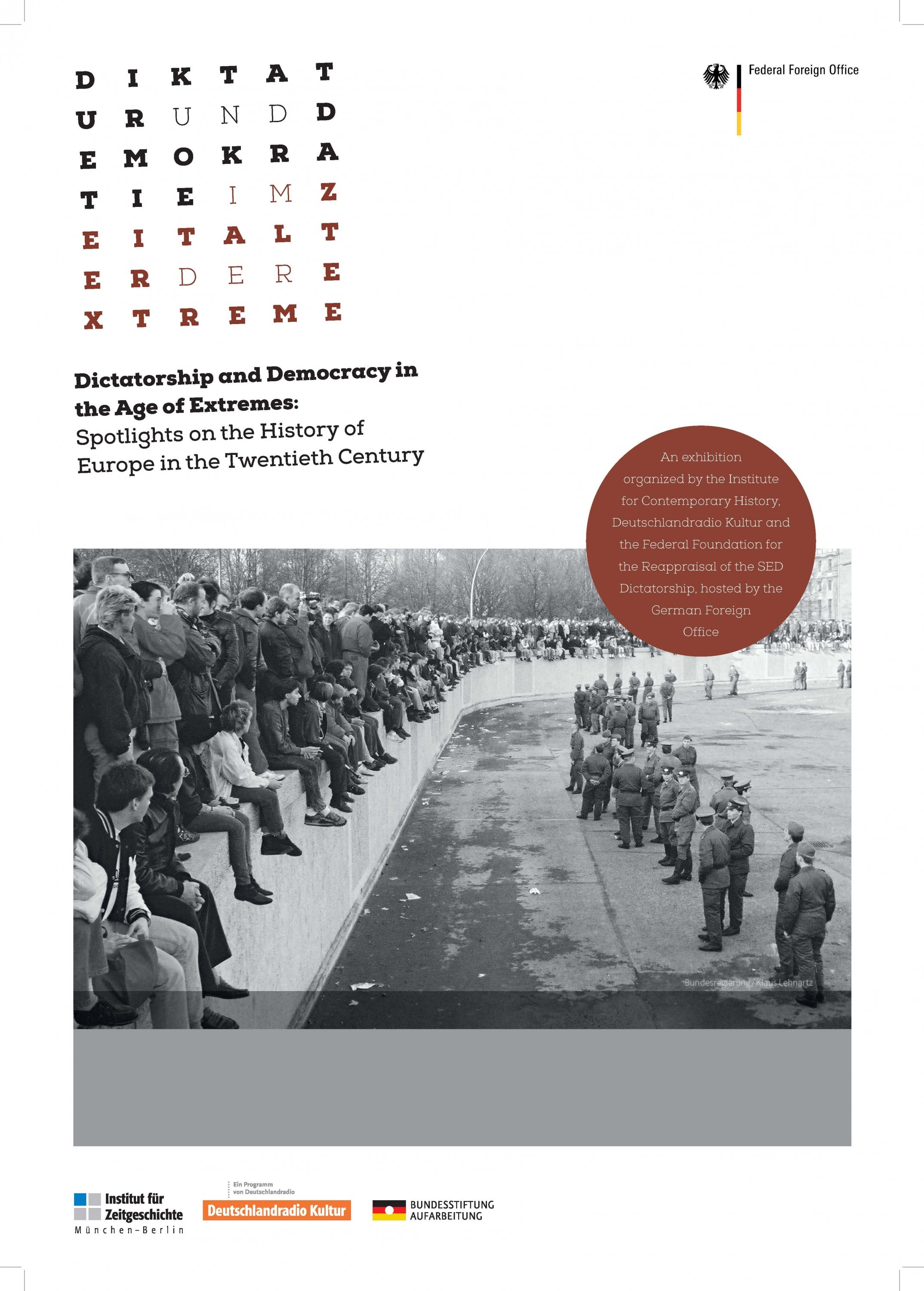
Revealing a total of 190 rare photographs, newspaper clippings and political cartoons from different European archives, the exhibition "Dictatorship and Democracy in the Age of Extremes" tells Europe's dramatic story of the 20th century – a past between freedom and tyranny, democracy and dictatorship.
Dictatorship and Democracy in the Age of Extremes: Spotlights on the History of Europe in the Twentieth Century

Revealing a total of 190 rare photographs, newspaper clippings and political cartoons from different European archives, the exhibition "Dictatorship and Democracy in the Age of Extremes" tells Europe's dramatic story of the 20th century – a past between freedom and tyranny, democracy and dictatorship.
Movie Night: Zug in die Freiheit/Train to Freedom
30.September 1989 kurz vor sieben Uhr abends. Fast 4000Menschen drängen sich im Garten der Prager Botschaft. Sie allewarten auf die Nachricht von Hans Dietrich Genscher. Schließlicherscheint er auf dem Balkon. „Liebe Landsleute. Wir sind zu Ihnen gekommen, um Ihnenmitzuteilen, dass heute Ihre Ausreise…“ Der Rest seiner Rede wirdvon lautem Jubelgeschrei übertönt. Es ist der Beginn einer derbedeutendsten Ereignisse der deutschen Nachkriegsgeschichte.Noch am gleichen Abend soll der erste Zug von Prag aus in die BRDfahren. Doch was dann bekannt wird, sorgt für Entsetzen: Die Zügesollen einen Umweg fahren. Sie müssen durch die DDR...
Prague 1989, September 30th. The West German Embassy in Prague finds itself the centre of the world's political stage. Forweeks, refugees from East Germany have been crowding the premises of the Palais Lobkowitz and the surrounding streets.Within days, the fenced embassy compound transformed itself into a vast refugee camp. Wrapped up in blankets and living intents, men and women, young and old, and whole families are waiting for the politicians to act. A few belongings, memories of their past and dreams of a better life in the West is all they bring along...
In German with English subtitles.
The Dawn of Freedom—East Germany 1989
Twenty-five years ago and after protests and peaceful demonstrations, the Berlin Wall opened, the East German government resigned, and German unification was on the horizon. The year 1989 was an eventful year for East Germans: protests during the local elections in spring; the flight of thousands via Hungary and Czechoslovakia in summer; anti-government protests in Leipzig and other cities and towns in fall, and the fall of the Wall in November.
Mat Schulze, prof in the Department of Germanic and Slavic Studies and director of the Waterloo Centre for German Studies, was a student in Leipzig in 1989. He will talk not only about the political developments that year but also give an eyewitness account of protests, civic rights actions, and demonstrations in Leipzig.
100 Years Since WWI: Dictatorship and Democracy in an Age of Extremes
Beginning with the outbreak of World War I in 1914, the last century saw the rise of Italian fascism and Soviet communism, the world economic crisis, and the rise of the Nazis to power in Germany, leading to the horrors of World War II.
